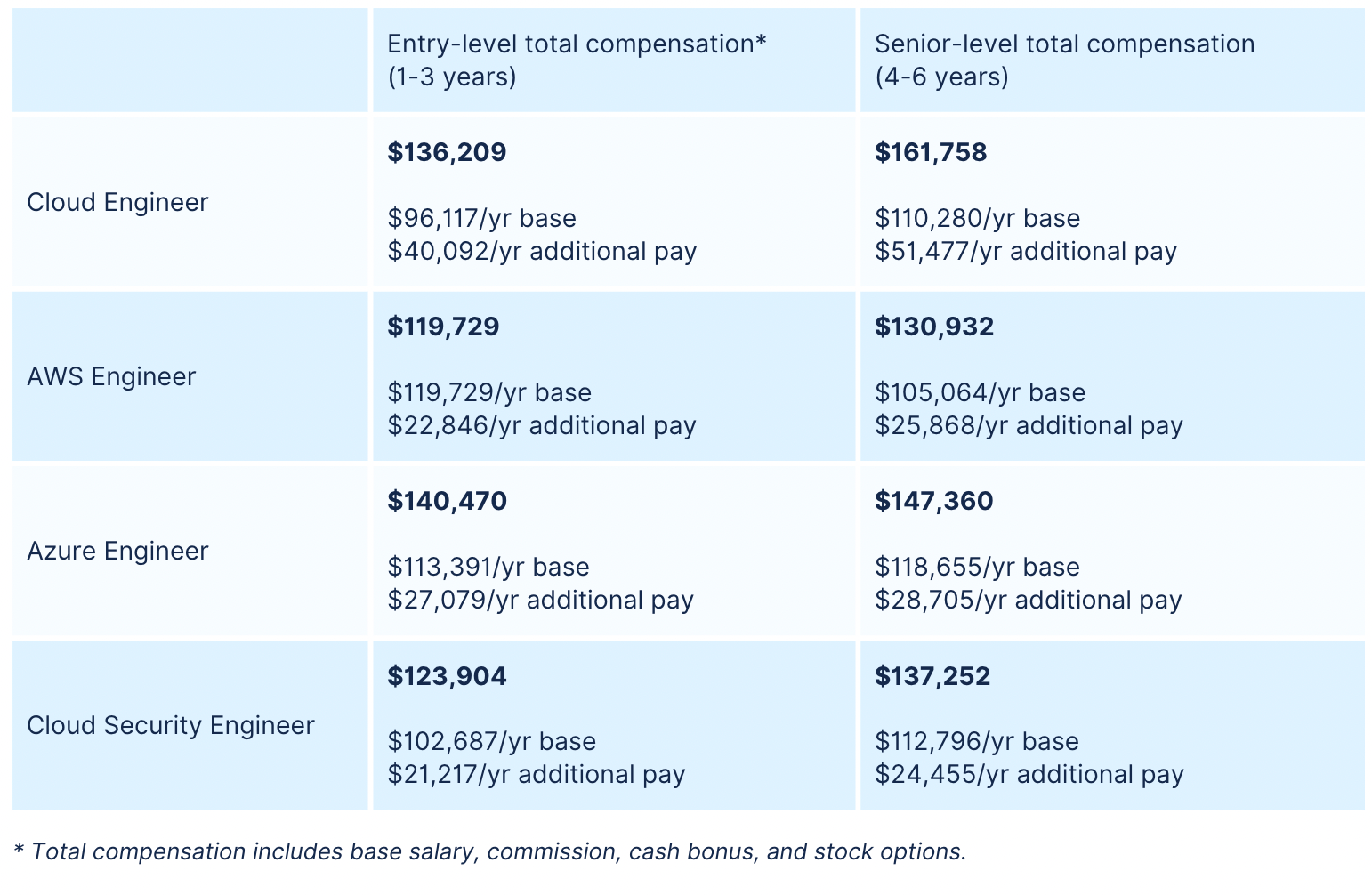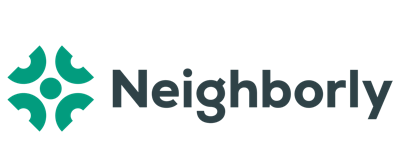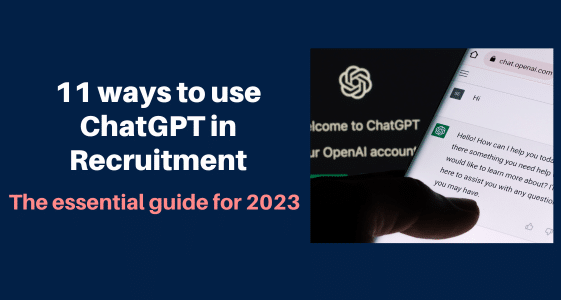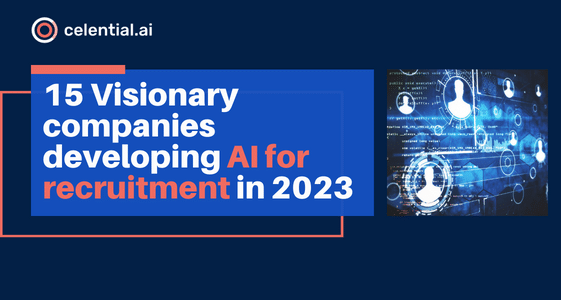The cloud computing market has experienced a decade of acceleration, and global revenue is projected to reach $1 trillion by the decade’s end.

Yet as businesses turn to the cloud for reasons of cost-savings, scalability, speed, and sustainability, there is a growing deficit in the number of skilled Cloud Engineers to build and maintain these cloud-based systems. In fact, cloud computing has been cited as the number one sought-after skill among tech employers.
That’s why we put together this essential guide on how to hire a Cloud Engineer for recruiters or hiring managers. We cover the most important strategies and tips for successfully filling this competitive technical role, including:
- The hard skills to look for, broken down by role and specialization
- Expert advice on crafting JDs, interview questions, and assessments
- Exclusive, data-driven tips based on our talent graph of 10+ million engineers in the United States and Canada.
And if you want all the info — including a cloud computing glossary for recruiters, FAQ, outreach template, resume samples, and our complete list of data insights — you can check out our full ebook, “The Essential Hiring Guide for Cloud Engineers.”
What is a Cloud Engineer
Cloud Engineers are IT professionals responsible for designing and implementing cloud-based solutions. They configure and manage cloud infrastructure while monitoring and troubleshooting any issues that may arise to ensure high application performance, uptime, and scalability.
Why hire Cloud Engineers
You might hire Cloud Engineers to:

- Work closely with developers, operations, and security teams to implement cloud-based solutions and manage cloud services and environments
- Optimize cloud computing infrastructure through automation, monitoring, and techniques such as load-balancing and autoscaling
- Develop and document best practices for application deployment, infrastructure maintenance, and cloud storage disaster recovery
- Advise technical and nontechnical stakeholders on cloud strategy and cloud cost optimization
Hard skills to look for in a Cloud Engineer
When it comes to hard skills, the first question you need to ask is: what type of Cloud Engineer am I hiring?
Smaller companies often employ generalists, while larger companies tend to create more specialized positions.
Here is an overview of the most common Cloud Software Engineer roles and the hard skills they require.
Cloud Engineers design, deploy, and maintain cloud systems, applications, and infrastructure. They need solid general programming skills in a language such as Python, Java, or Node, as well as knowledge of public cloud service providers such as Amazon Web Services or Microsoft Azure.
Cloud Infrastructure Engineers, Cloud Platform Engineers, and Cloud Operations (CloudOps) Engineers focus on the underlying cloud infrastructure, cloud platforms, and operations. They often have strong skills in Automation, Configuration Management, IaC tools, containerization, and cloud monitoring.

Cloud Architects design an organization’s overall cloud architecture and cloud strategy. As such, they need a solid understanding of Cloud Engineering and DevOps.
Cloud Solutions Engineers work with clients and partners to solve business problems with cloud solutions. In addition to solid knowledge of public cloud services, they typically require client-facing skills. Other similar roles include Sales Engineer, Customer Success Engineer, or Partner Engineer.
Cloud Security Engineers implement and manage cloud security measures and procedures to safeguard cloud systems against vulnerabilities and malicious actors.
Cloud Network Engineers focus on designing and implementing cloud-based network infrastructure, including routers, switches, and connectivity.
This chart includes specific tools associated with each area of knowledge.
| Area of Knowledge | Tech Stack |
| Programming Languages | Python, Java, Go, C++, C, Ruby, Node |
| Scripting | Shell, Bash, Perl |
| Automation | Jenkins, Bamboo |
| Configuration Management | Chef, Puppet, Salt, Ansible |
| IaC Tools | Terraform, CloudFormation |
| Public Cloud Services | Amazon Web Services (AWS), Microsoft Azure, Google Cloud Platform (GCP) |
| Containerization | Docker, Kubernetes, OpenShift, AWS Elastic Container Service (ECS) |
| Cloud Monitoring | Amazon Cloud Watch, Google Cloud Operations, Datadog |
| Code Management | Git, GitLab, BitBucket |
| Cloud Networking | TCP/IP, Firewalls, L2-L7 protocols |
| Cloud Security | Okta, CyberArk, Proofpoint, Tanium |
It can also help to take a look at some sample Cloud Engineer resumes to get comfortable with the format and terminology.
9 Key cloud services certifications
With the rise of skills-based hiring, many recruiters find that a Bachelor’s Degree and work experience aren’t the only way to identify a good Cloud Engineer.

Here are the most important certifications for a Cloud Engineer and the skills they demonstrate.
#1: AWS Certified Solutions Architect
This certification helps demonstrate knowledge and skills in cloud technology across a wide range of Amazon Web Services, focusing on the design of cost and performance-optimized solutions. It requires a strong understanding of the AWS Well-Architected Framework.
#2: AWS Certified Developer
This certification requires significant knowledge of core Amazon Web Services, uses, and basic AWS cloud architecture best practices. It demonstrates proficiency in developing, deploying, and debugging cloud-based applications with AWS.
#3: AWS Certified SysOps Administrator
Earning this certification demonstrates that a Cloud Engineer has experience deploying, managing, and operating workloads on the AWS cloud. It is also a common credential for systems administrators.
#4: Microsoft Azure Developer Associate
This certification is for a Cloud Engineer who participates in all phases of cloud software development, from requirements definition and design to development, deployment, and maintenance.

#5: Microsoft Azure Solutions Architect Expert
Those with subject matter expertise in designing cloud and hybrid solutions that run on Microsoft Azure often possess this certification. It covers computing, network, storage, monitoring, and cloud security.
#6: Google Associate Cloud Engineers
This certification demonstrates an engineer can deploy applications, monitor operations, and manage enterprise solutions on Google Cloud Platform.
#7: Google Professional Cloud Architect
This certification showcases a thorough understanding of cloud infrastructure, architecture, and Google Cloud. It demonstrates the ability to design, develop, and manage robust, secure, scalable, highly available, and dynamic solutions to drive business objectives.
#8: CompTIA Cloud+
This global (not platform-specific) certification validates the skills needed to deploy and automate secure cloud environments, supporting the high availability of business systems and data.
#9: (ISC)²’s CCSP
The CCSP (Certified Cloud Security Professional) demonstrates advanced technical skills and knowledge in designing, managing, and securing data, applications, and infrastructure in the cloud. It follows the best practices, policies, and procedures established by (ISC)²’s certified Cloud Security experts.
Soft skills to look for in a Cloud Engineer
According to research by the Rochester Institute of Technology, the importance of soft skills in engineering roles is growing. Work is becoming more complex due to technological changes, increased use of automation, and globalization. As a result, employees must have skills that machines cannot replace.

Here are the most important soft skills a good Cloud Engineer needs to have to be successful.
Desire to continuously learn.
A habit of asking questions, staying on top of industry trends, and learning new and cutting-edge cloud technologies is key. When perusing a Cloud Engineer’s resume, you might look for indications that they have acquired new skills in different roles, attended events such as hackathons and meetups, and demonstrated sustained professional growth.
Oral and written communication skills.
Due to the collaborative nature of computer engineering, communication skills are essential. A Cloud Engineer doesn’t just write code — they also document complex architecture and codebases, give technical presentations, and negotiate the requirements of technical and non-technical stakeholders such as Product Managers and Business Analysts.

While it’s not always easy to spot great communication skills on a resume, a typo-free, clear, concise resume is a good sign.
Business acumen.
A good Cloud Engineer knows how cost optimization, cloud security, and technological innovation tie into business goals and solve key business needs. On a resume, you might look for concrete numbers, key data, and an impact of engineering accomplishments on business objectives.
Where to find Cloud Engineers
When the market is tight and competitive, a data-driven strategy is essential.
With our Talent Graph of 10+ million tech profiles across the United States and Canada, our Data Team extracted critical insights regarding the demographics of Cloud Software Engineers in 2023. Here’s what they found.
How many Cloud Engineers are there?
In the diagram below, we can see 57.5K Cloud Engineers listed a Bachelor’s degree on their public profile. There are 28.1K with only some college experience, a high school diploma, or general study/associate programs. 4.9K Cloud Engineers listed no educational history, putting the total number of Cloud Engineers in the U.S. to 90.5K.

The upshot? Employers looking to hire a Cloud Engineer should consider relaxing degree requirements and hiring based on skill proficiency.
Top Universities for Cloud Engineers
The Cloud Engineers that we found through our Talent Graph earned their four-year degrees at 6,577 unique universities.

The number one most popular university for Cloud Software Engineers is Jawaharlal Nehru Technological University in India.
In comparison, the top university in the United States was the online Western Governors University in Utah. San Jose State University in California was a close second.

For the full talent graph findings, including data insights on cloud certifications, gender diversity and more, you can check out our complete ebook “The Essential Hiring Guide for Cloud Engineers.”
Top communities and platforms for hiring Cloud Engineers
Whether you’re looking for a full-time hire or freelance software development services, here are the top eight places to find and hire a Cloud Engineer.
GitHub
GitHub is a platform where members of the software development community collaborate on cutting-edge coding projects together. It’s a great place to connect with Cloud Engineers who might not be active on professional networks and career sites.
Stack Overflow
Stack Overflow is a Q&A board for technical information and theoretical discussions about coding. It provides recruiters a direct window into engineers’ expertise with particular cloud technologies and insight into their communication style.
A Cloud Guru:
ACloudGuru helps engineers level up their cloud skills with courses and certifications. Recruiters can check out its Discord server to find engineers actively seeking to expand their knowledge and skills in cloud computing.
Celential.ai:
Using AI and ML models custom-built for tech recruiting, Celential provides skilled tech candidates for your roles — freeing you up to close more hires with fewer resources. With sourcing fully taken care of, hiring teams report up to 50% cost savings.
Toptal:
Only seasoned freelance engineers show up on Toptal. It’s definitely a faster way to search for candidates with the right skills than other freelancer platforms such as Upwork, but you can expect that search to return more expensive hourly rates too.
r/cloud:
You’ll find Cloud Engineers discussing cloud skills, technologies, and trends on the Cloud Computing subreddit. Recruiters can join the community to connect with Cloud Engineers, ask questions, and get insight into industry trends.
ArcDev:
ArcDev flips the script and lets companies apply to candidates. Though it requires a bit more upfront effort and wooing on the employer’s part, it is a great way to connect with experienced, Senior Cloud Engineers looking for full-time positions.
Women Who Code:
WWC is the world’s largest community supporting women in tech. It has hosted over 14,000 free technical events, workshops, and conferences for its 290,000 members. Its job board is an excellent place to advertise Cloud Engineer positions.

How to hire a Cloud Engineer
Here are our favorite tips for hiring skilled Cloud Engineers to succeed in this rapidly growing industry.
Job description tips for hiring Cloud Engineers
To craft a compelling job description, it’s important to tell the candidate a story about the exciting path your company is on, and how their personal career trajectory fits into it.
The aim of a job description isn’t to “describe the job,” but rather to pitch the job to qualified candidates. As such, a job description should include:
- Company mission: Why are you doing what you’re doing? What makes you unique, and what is your impact?
- Company pitch: This includes information such as your funding, impressive VC backers, or customers a potential candidate might have heard of.

- Innovative tech stack: As the cloud computing market balloons and companies shift to the cloud, many engineers entered the field to be at the forefront of the latest and coolest tech. Which new and groundbreaking cloud technologies will they get to use in the role?
- Exciting new opportunities and responsibilities: Pitch points include opportunities to grow, lead, make an impact, and influence your team’s culture. Many Cloud Engineers are excited by the opportunity to take ownership and continually learn.
- Perks and benefits: Some of the most desired benefits of 2023 include employer healthcare, life insurance, pension and retirement plans, mandatory PTO, and mental health assistance. It’s also not uncommon for companies to lure in-demand Cloud Engineers with generous sign-on bonuses and stock options.
Here’s a template you can follow.
Company & Role Pitch | [Company] is a cloud-based platform pioneering a [innovative approach #1] to [industry]. Using [innovative approach #1], we are inventing new ways to [company’s mission]. We seek an experienced Cloud Engineer to join our team of world-class scientists, engineers, and experts from [top school] and [top company]. As Cloud Engineer with [Company], you will design, develop and deploy the cloud infrastructure at the heart of our platform, using cutting-edge cloud technologies. |
| Responsibilities | – Empower engineering teams to run applications in the cloud reliably and securely – Partner with engineering team to optimize cloud adoption and cost management – Automate the deployment, monitoring and management of cloud resources – Identify and resolve deviations from compliance and security standards – Build and maintain reusable Infra-as-Code (IaC) modules for development teams – Participate in design review process to provide guidance on cloud strategy, design decisions, and operational practices – Stay up-to-date with cloud ecosystem and emerging cloud technologies – Participate in on-call rotation to provide support for critical production issues |
Requirements | – 3-6 years of experience implementing public cloud solutions – Experience developing with languages like Python, Go or Java – Experience in Continuous Integration and Continuous Delivery, with Jenkins, Bamboo or other similar DevOps tools – Experience with IaC platforms such as Terraform and Cloudformation – Automation experience and solid knowledge of a scripting language such as Python, Perl, PHP or Ruby |
Interview question tips for recruiters
It’s not always easy for recruiters to know what questions to ask when it comes to a highly technical role like Cloud Engineer. Here are some tips for crafting great interview questions, no matter your level of technical knowledge.
#1: Utilize ChatGPT. The chatbox can save lots of time in the interview process by automatically generating lists of interview questions for each position, from Senior Machine Learning engineer to Cloud Architect. You can also give it instructions on the desired level of complexity (easy, medium, and hard) and format (behavioral question, complex skill question, take-home test prompt, etc.).

#2: Prioritize candidate experience. Simple steps like beginning with small talk, pausing to answer questions, and thanking the candidate for their time will create a much more positive relationship and experience.
#3: Ask about a previous project. Whom did they work with? What were the problems they were solving? What was their approach? How did they handle bottlenecks and setbacks in the development process? Great answers will reflect the use of metrics to measure success, incorporation of feedback, and a focus on results and overall business impact.
#4: Ask about methodology. An effective workflow is key to developer productivity and code quality. Interviewers should listen for familiarity with specific methodologies such as Agile, the use of test-driven development techniques, and attention to detail.
#5: Ask about industry trends. Good answers will reflect broad expertise in the cloud computing industry, knowledge of recent issues and trends, and big-picture critical thinking regarding business problems. A few topics candidates may reference include:

- Rising costs for state-of-the-art cloud systems and cloud cost optimization, and multi-cloud sprawl
- Integrating AI/ML technologies into cloud computing
- Emerging cloud security challenges targeting IP addresses, VPNs, OT systems, etc.
- Adoption of serverless computing models and edge computing
- Increased government regulation around data privacy, maintaining security, etc.
#6: Use a technical interview question cheat sheet. Here are our favorite Cloud Engineer interview questions and answers, broken down by role, specialization, and seniority.
Assessment tips for hiring teams
There’s one key principle to remember to design a great assessment: test for the skills the candidates will actually use in the role, in the environment most similar to the actual job.

That’s why hiring teams should:
#1: Use take-home tests. They are a more objective way to compare candidates, eliminating bias and interviewer influence. They also improve the candidate experience by reducing stress and giving providing insight into real work the candidate would be doing on your team.
#2: Streamline the coding assessment. Many top developers are already employed and short on time. Streamlined coding assessments will keep attrition rates low and ensure you’re sticking to just the things that matter.
#3: Set candidates up for success. Don’t make life difficult for candidates! Communicate clear expectations for what the candidates are required to do, the skills they must demonstrate, how they will be evaluated, and how long it will take.
#4: Design open-ended coding problems. Problems with a straightforward solution often test very specific skills — and there is an element of luck in whether or not the candidate finds the right answer. On the other hand, open-ended, multi-stage real-world problems provide plenty of opportunities for candidates to demonstrate their skills and approach.

#5: Test the test. Test the test on members of your team. If current, high-performing members of your team can’t pass it, you’ll be screening out the majority of candidates who would make great hires.
#6: Provide (and solicit) feedback. For a great candidate experience, it’s important to provide thoughtful feedback to a developer who spent time completing a coding test. And by asking for feedback in return, you’ll give candidates a good impression of your engineering hiring culture (and improve your process too).
What is the average US salary for a Cloud Engineer?
The average US salary for a Cloud Engineer is $136,209 for an Entry-level role and $161,758 for a Senior level role.
Here are more market salary data to help you plan headcount and compensation targets for common Cloud Software Engineer roles across the United States, based on data from Glassdoor.

Keep in mind that pay varies by location and company. For example, a Cloud Engineer in San Francisco (CA) is compensated $170,397 on average, but one in Charlotte (NC) receives around $156,645. And while a Cloud Engineer at Meta receives $245,575 on average, at Lockheed Martin average compensation is $131,934.
Wrapping up:
Due to the shortage of cloud engineering skills, compensation ranges continue to rise. If your team needs to hire a Cloud Engineer but high agency fees are out of the question, AI solutions can help you save up to 50% on recruiting costs.
Using AI and ML models custom-built for tech recruiting, Celential provides skilled tech candidates for your roles — freeing you up to close more hires with fewer resources.

We offer:
- Warm, qualified talent ready for interviews delivered in your inbox or ATS in 3 days on average
- Coverage of specialized engineering, product, and data science talent: including Machine Learning Engineer, Data Scientist, Fullstack Developer, Backend Developer, Frontend Developer, DevOps Engineers, Tech Leads, Architects, and Managers
- Instant flexibility to scale up and down your recruitment efforts as your hiring needs, role priorities, and budget shift during these uncertain economic times.
Request a demo to see our AI solution in action.
Table of Contents


































Submit a Comment